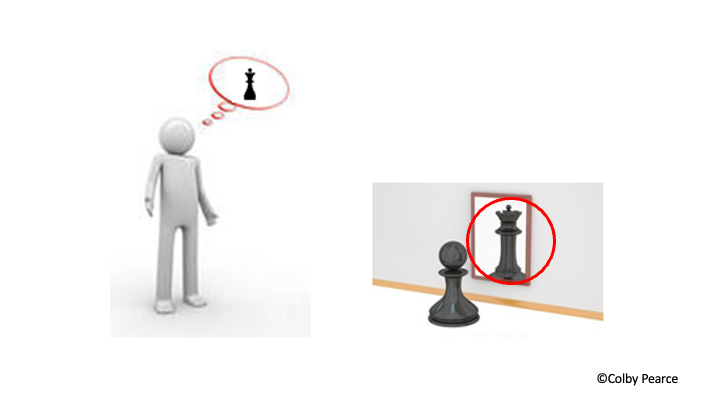
In his book Human Nature and the Social Order, published in 1902, a man with the rather auspicious name, Charles Horton Cooley, coined the term “looking glass self”. According to Cooley, people see themselves as they experience others to see them.
Through the 20th century this proposition was refined and determined to be most true for children and young people. That is, children and young people are most susceptible to seeing themselves as they experience others to see them; especially the adults who care for them. We adults play a more active part in influencing how others see us. If we focus too much on challenging aspects of the child or young person’s presentation, they will see themselves as bad, or inadequate, or deficient in some way. They will doubt their worth. The child who lacks self-worth will approach life and relationships without appropriate consideration of themselves, their own best interests, and their deservedness of being on good terms with others. Rather, they will approach life and relationships however they think they need to, to survive, and without due consideration of the consequences of their actions.
To see the good in themselves, we need to see it too.
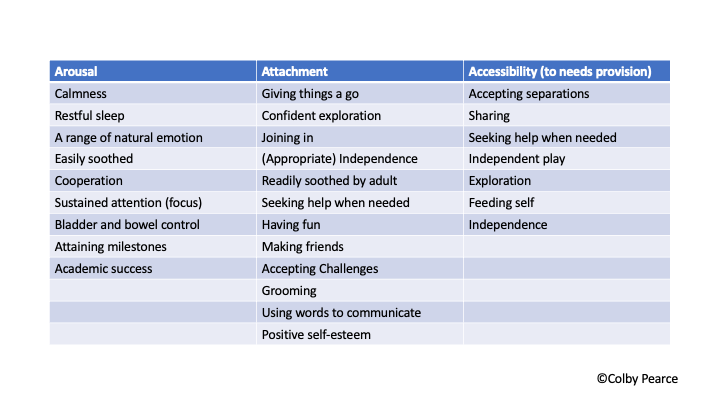
In this table I draw your attention to a range of behaviours to look out for as signs that a child or young person is recovering and thriving in your care. There are additional tables, of what to look for among pre-schoolers, primary-school-aged children, and teenagers, which you can find in the handbook for this module. Using the table above and those in the handbook, I encourage you to identify signs of positive attachment, well-modulated arousal, and new learning about the accessibility and responsiveness of adults in a caregiving role for needs provision that relate to a child or young person in your care, and keep a look-out for when they are visible to you. The reflection activity below might help.
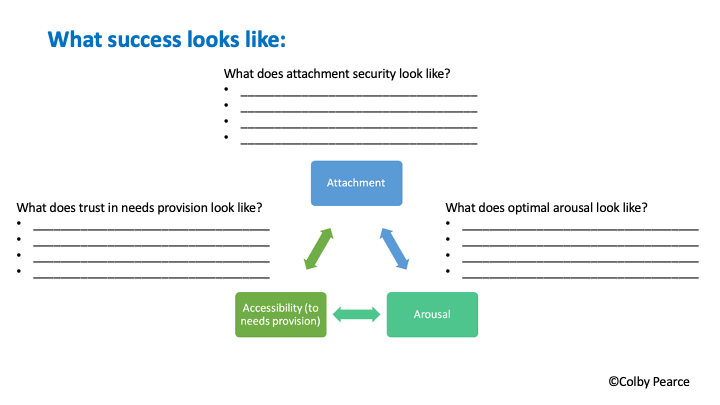
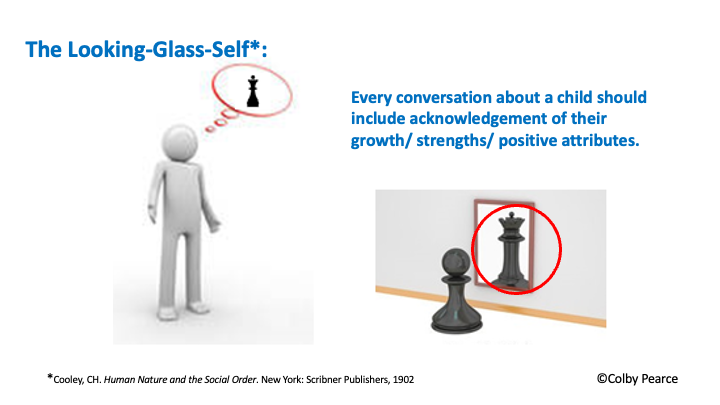
When people say that the child or young person has “come a long way” in your care, ask them what they have noticed. There may be things that you have not noticed and, even if you have, it is helpful to get positive feedback about positive outcomes of our endeavours.
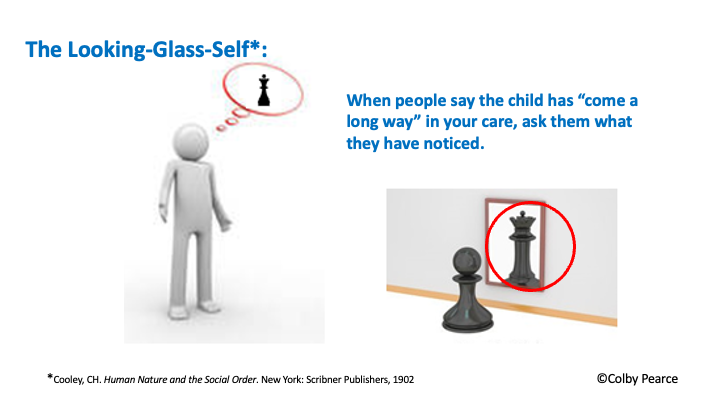
Further, whether you are talking to your partner, family, the school, or professionals involved with you and/or the child or young person in your care, make sure that every conversation includes acknowledgement of the child or young person’s growth, strengths, and/or positive attributes.
A focus on signs of recovery and strengths is good for your wellbeing and that of the children and young people in your care!
Click here to access the next page.
Click here to access the handbook for this module.
